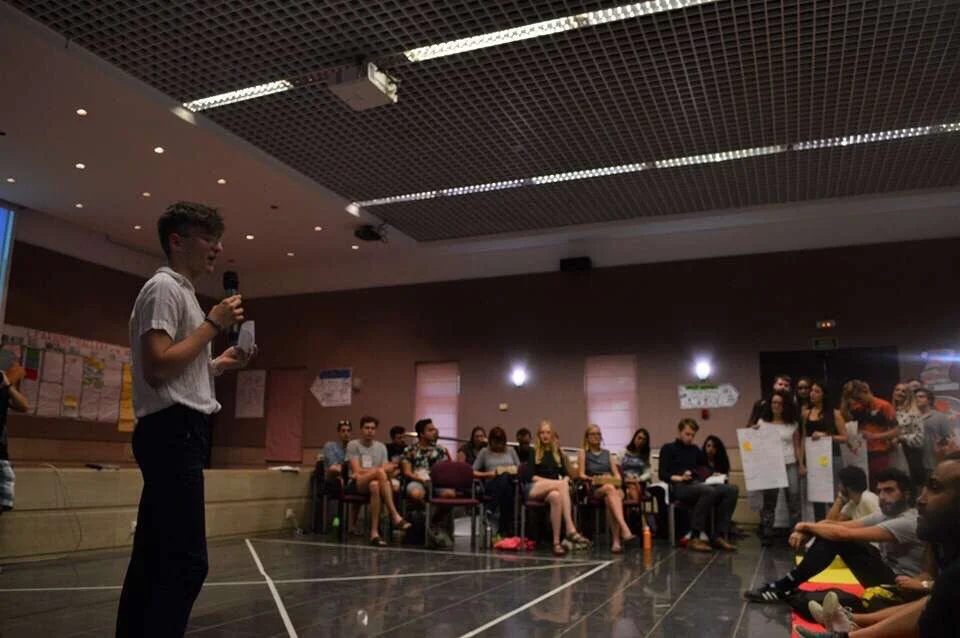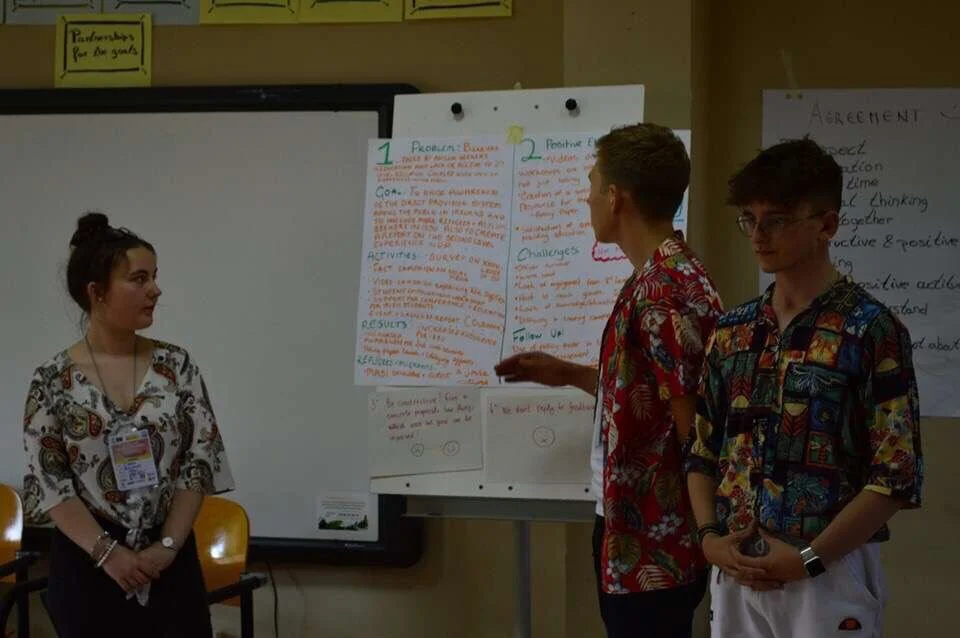Spreading Seeds-Evaluation Seminar in Spain
From the 15th to the 22nd of September, our president, Ciara and Seeds For Integration Working Group members, Matthew and Matas attended the 20th edition of the University on Youth Development (UYD) in Mollina, Spain, as part of an evaluation seminar of our working group’s progress.
OBESSU are running a 3 pillar grass root project called Seeds for Integration. ‘Seeds’ promotes and advocates the inclusion and integration of migrant, refugee and asylum seeker students in 2nd and 3rd level education across Europe.
ISSU became involved with the project in late 2018, with our working group focusing on the injustices that refugee and asylum seekers face when accessing 3rd level education in Ireland. We successfully ran our ‘Prospects not Provision’ project, with a collaborated conference with MASI due in October in Trinity College.
This year the Evaluation Seminar for our project was held in CEULAJ, Mollina, Spain as part of the UYD. The UYD gathers representatives from different youth organisations and youth movements to discuss, train and be trained around the main issues on the global agenda.
The week consisted of workshops learning how to make communities more intercultural and how asylum seekers, reugees and migrants can become included in society, rather than segregated. We had plentiful representation from student unions across Europe presenting on the ‘Seeds’ project for the project cycle evaluation.
ISSU also propposed an lead a Fridays for Futures Global Strike in Mollina!
Overall, a very productive week for our working group and the three of them came back with an even better motivation to destroy barriers in education for the young people of Ireland.






Blog: International Continuous Assessment Perspective
Many of the critics of the proposed Junior Certificate reform have stated that its implementation would be somewhat a replicate of the “failing systems” abroad.How about a challenge to this argument, let’s look at this differently. Over the past nine months, I have met hundreds of students from across Europe who loves the idea of continuous assessment. The conversations that have erupted following my statement that some stakeholders in Ireland’s education system don’t support the entirety of these reforms have been somewhat entertaining.Let’s get one thing clear. The TUI and ASTI (the teaching unions who are striking tomorrow) are not against the entire idea of continuous assessment – they are against the internal assessment element and are worried that the JCSA could be a diluted version of our current Junior Certificate programme. Perhaps they think this may damage Ireland’s second-level education system or that the credibility of the Junior Certificate award could be affected. This blog is focused on international situations and is in no way to be directed at the striking teacher unions. This is an opportunity for those watching this debate to see just how continuous assessment works in countries outside of Ireland.Let’s look at England for example. The majority of education stakeholders are in support of continuous assessment. I spoke to a previous student officer of Student Voice, the English equivalent to ISSU, so to understand their views and so to get a clearer perspective on this. I was told that;“The ongoing qualification reforms in England and Wales were started by Secretary of State Michael Gove. This took place between 2010 -2014. In response to so-called 'grade inflation', the Department for Education decided to 'toughen-up' GCSE and A-Level exams resulting in abolishing coursework (continuous assessment) and reintroducing 100% terminal assessment. The new courses are in the process of being introduced, with teaching due to start in September 2015, for assessment in Summer 2017. Gove's reforms were opposed by the majority of the educational community, including teaching unions and academics, but that didn't change his mind. Gove isn't one known to listen. One of the main criticisms advanced was that terminal exams are a poor assessment of learning outcomes, benefiting only a specific kind of learner who can memorise and regurgitate facts, rather than testing true learning. Teachers complained it would cause teaching to the test, curtailing their academic freedom in the classroom and putting extra pressure on them to achieve exam results at the expense of pursuing quality learning and students' development. Some also said that complete focus on terminal assessment demeans education, making qualifications (and exam grades) a commodity to be secured at the end of education, with the learning gained along the way being only an incidental benefit, if achieved at all”.But what about further afield? Students don’t like the idea of standardised tests and terminal assessment without any form of continuous assessment. Last June I travelled to Rome on behalf of ISSU for the event “Education In Crisis” which was built around the fact that education has been hit hard and was ultimately in a dire state following the austerity budgets that Europe had to inflict on its people. Many of the arguments there said that they feared terminal assessment making a comeback so to drive down costs and others couldn’t stop expressing their sheer hatred for the international exam – PISA.The situation is clear further afield – students like continuous assessment as they feel engaged and motivated. It provides them with the education they need and deserve, in an interesting and productive way.We have been engaged in this reform for many years. We have had the conversations internationally and we have taken all points on board for these reforms and we can say that the studies that we’ve been involved with point to a solid conclusion – internationally continuous assessment works so why can’t it work within our Junior Certificate curriculum?

